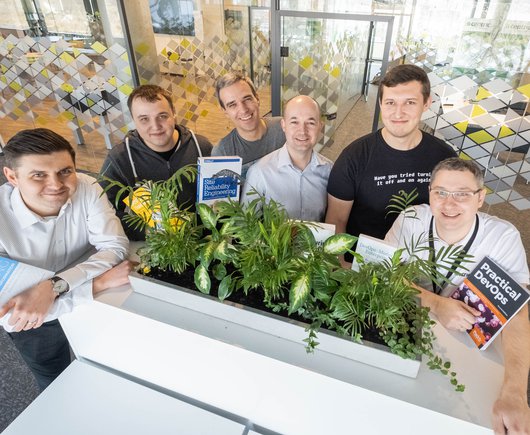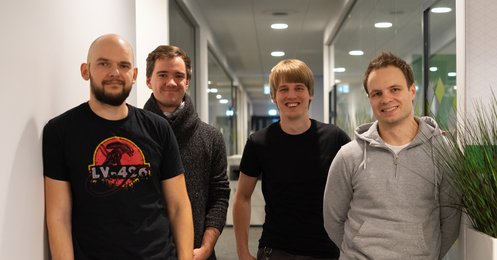Such large suppliers like Microsoft Azure, Amazon AWS, or Google Cloud Platform offer a wide range of ready-to-use services but in order for them to be used in an integrated way, safely, effectively and by saving resources, there is a need for IT infrastructure knowledge, therefore, many cloud engineers have completed IT studies and have acquired IT infrastructure administration experience in larger or smaller companies.
"So far, Lithuanian universities are offering a small number of study programs directly related to cloud engineering, so the future cloud engineers who have graduated or are still studying in various IT courses are gaining knowledge in online training,” Mantas, who has gained a Master's in informatics from VU, shares his experience. "Although, until now the IT world accepted mostly university graduates from the field of IT, currently, private programming schools and even employers are increasingly providing access to this knowledge for employees who wish to retrain."
What skills do IT specialist considering the position of a cloud engineer must have? According to Mantas, most application tools, methods, and programming languages can be learned quite quickly: the internet is full of the necessary material. In addition, the rapid development of technology requires IT professionals to constantly follow up on innovations. So, in addition to technical knowledge, skills are of utmost importance - an ability to learn quickly, broad thinking, and capacity to link components. "I would also like to emphasize teamwork skills because, in the modern context of abundant technology, a single person simply cannot know all the necessary technologies to achieve a high-quality result, so smooth teamwork is essential," says the head of cloud engineering development group.
When assessing the cloud engineers' situation in labor market Lina Žalpytė, head of the selection group at the Alliance for Recruitment job agency, notes that their demand is growing rapidly. And with the development of cloud technologies and them becoming more popular in the market, it is expected that the demand of its specialists will only increase. Considering the fact that demand is far above the supply, the employee search alternatives are often considered. A more flexible approach to requirements for the position is suggested, for example, it is urged to hire less experienced, junior-level candidates with the possibility to train them, and so on.
The search for candidates goes beyond Lithuania. One of the latest success stories mentioned by L. Žalpytė, is a Lithuanian returning from Germany to work as a cloud architect in Centric IT Solutions Lithuania.
According to the recruitment specialist, the demand for experienced cloud engineers is much higher, and the young specialists who are just starting to pave their way in the field of IT show more initiative to be noticed.
"Meanwhile, experienced professionals need to be looked for and lured in because they are already working in other companies and are often satisfied with their position and valued by their employers, therefore, they don't have huge incentives to actively follow the job opportunities in the market," L. Žalpytė claims.
Current trends show that at present most IT engineers are already expected to have experience with any cloud solution (AWS, Azure, Google) or their separate tools. So, according to the labor market experts, IT professionals working with cloud technologies appear at the top ten of the most marketable employees in Lithuania.



